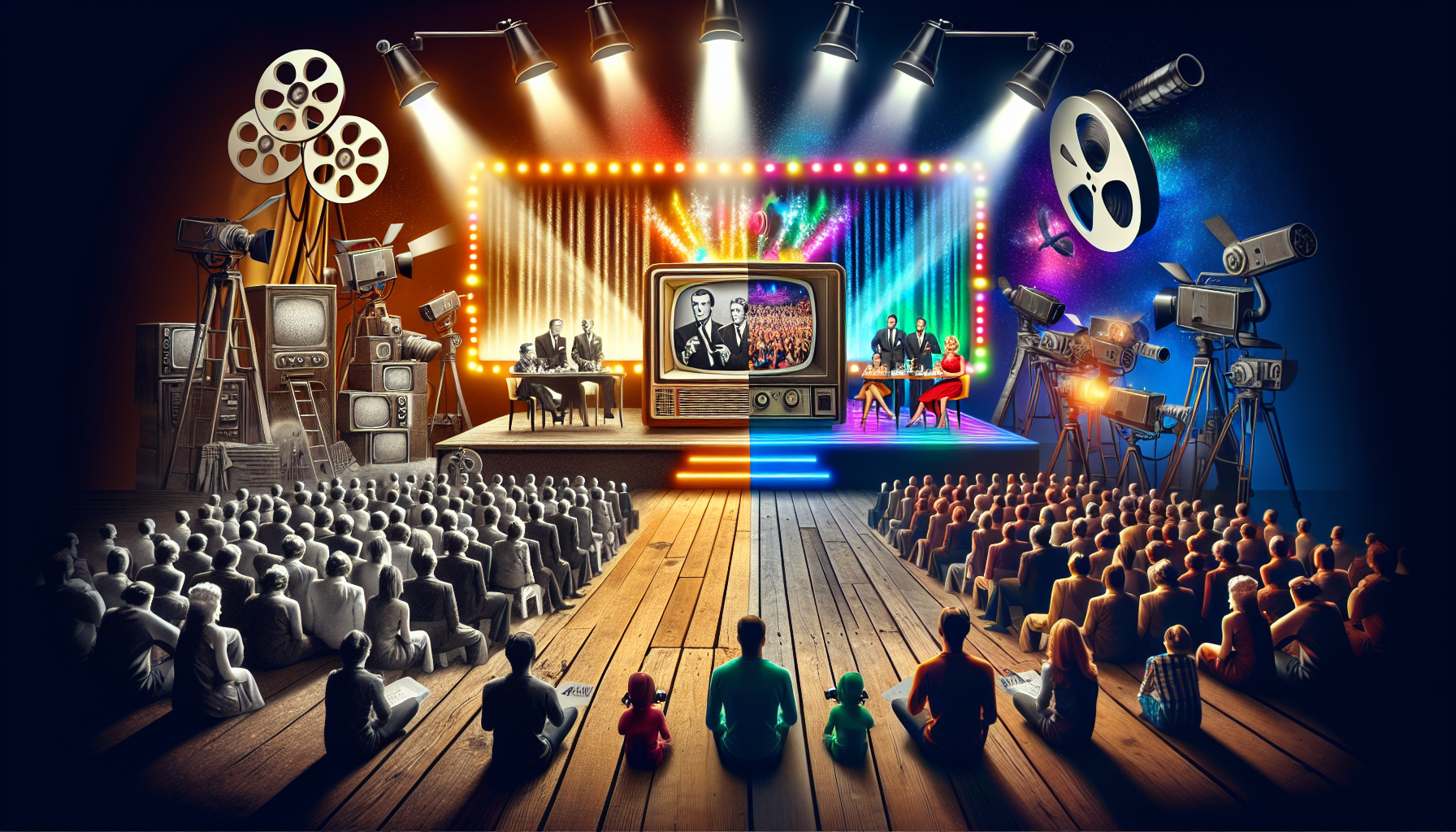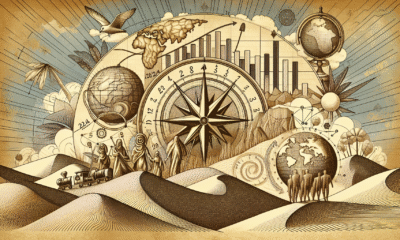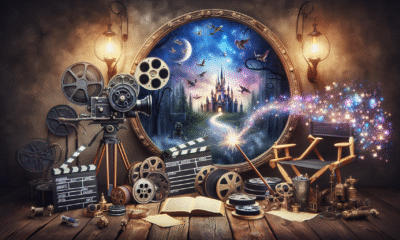Entertainment
Reality Check: How Reality TV Changed the Entertainment Business Landscape

Do you ever find yourself binge-watching “Keeping Up with the Kardashians” or “Survivor” and wondering, “How did we get here?” Reality TV has not just become a guilty pleasure; it has reshaped the entire entertainment industry. From transforming casting practices to altering the nature of storytelling, the impact of unscripted television is undeniable. In this article, we’ll explore how reality TV changed the entertainment game and why you should care.
The Rise of Reality Television
Reality TV began to gain traction in the early 2000s, surprisingly taking a front seat and leaving traditional scripted dramas and comedies in the dust. Shows like “American Idol” and “The Osbournes” were just the tip of the iceberg. According to a report from Statistics, the number of reality shows in the U.S. skyrocketed from about 75 in 2000 to over 400 by 2016. This explosive growth reflects a larger cultural shift—viewers were hungry for something new, raw, and relatable.
What Makes Reality TV So Addictive?
- Authenticity: People crave genuine experiences. Unlike scripted content, reality TV aims to capture real-life scenarios. This “authenticity” makes it feel more relatable.
- Character Connection: Reality stars often become household names, and viewers develop a parasocial relationship with them. You cheer, cry, and even gossip about their lives as if they’re your friends—thanks, social media!
- Interactive Engagement: With the rise of social media, fans can now engage with their favorite stars, contributing to a sense of community around shows.
How Reality TV Changed the Industry
Redefining Success
Reality stars can become cultural icons overnight, an avenue that scripted actors used to dream of. For example, Kim Kardashian went from a personal shopper to a billionaire through her reality show fame. This shift in success metrics is shaking up traditional pathways to stardom.
- Pay Structures: Networks are more willing to invest in reality shows, recognizing their potential for profit through advertising and sponsorship. The success of shows like “The Bachelor” has proven that reality TV is a lucrative business model.
- Celebrities in Real Life: Brands now deploy influencers and reality stars as advertising vehicles, recognizing their organic reach on social platforms.
Casting and Talent Development
The traditional talent pyramid is crumbling. Now, anyone with a compelling story or an intriguing personality can land a gig in a reality show. The need for actors is shifting toward "real people," which offers opportunities for diverse voices and stories that were previously overlooked.
- Diversity: Reality TV often showcases individuals from varied backgrounds and walks of life. While there’s still much work to be done, we’re beginning to see an increase in shows focusing on racial, ethnic, and sexual diversity.
Changing Content Distribution
The way we consume content has also evolved. With platforms like Netflix and Hulu, viewers no longer have to tune in at a specific time; they can binge-watch entire seasons at their own pace. Reality TV lends itself well to this model. Consider shows like “The Great British Bake Off,” where viewers can indulge in culinary high stakes at their leisure, becoming part of a community of fellow binge-watchers.
- Transmedia Storytelling: The narratives don’t stop on-screen; they continue across social media and in real life, where fans interact, share, and create content around their favorite shows.
A Voice for Social Issues
Reality TV has also been an unexpected platform for raising awareness about social issues. Shows like “Queer Eye” and “The Circle” have tackled topics ranging from identity to mental health, resonating deeply with audiences.
- Advocacy and Awareness: The conversations fostered through these shows can lead to real-world impact, prompting discussions that extend beyond the clock.
The Drawbacks of Reality TV
It’s not all sunshine and rainbows, though. Some critics argue that reality TV promotes negative stereotypes, exploits participants, and oversimplifies complex issues.
- Exploitation: Many reality stars have voiced concerns over the emotional and psychological toll of participating in such shows, often revealing that producers manipulate events for dramatic effect.
- Misrepresentation: The reality presented in these shows is not always genuine. Producers often stage scenarios, leading viewers to misconstrue what is real.
Would it have been better if there were stricter regulations in place to protect participants? It’s a debate that continues, one that you’ll often see bouncing around social media.
Looking Ahead
So, what does the future hold for reality TV? As technology evolves, we can expect even more interactive and immersive experiences. Think virtual reality and augmented reality showing up in your living room, pulling you deeper into the action.
Moreover, the lines separating scripted and unscripted content are starting to blur. We’re already seeing more scripted content that draws inspiration from the drama of real life.
Conclusion
Reality TV has undeniably transformed the landscape of entertainment. From its rise as a powerhouse genre to its role as a platform for social change, it’s apparent that this form of storytelling is here to stay. The next time you find yourself lost in a reality binge, think about the far-reaching implications of what you’re watching.
If you’re curious about more shifts in the entertainment industry, check out our article on How Streaming Services Changed TV Viewing Habits for a deeper dive. Additionally, consider checking out examples of diverse storytelling in media on Pew Research Center.
So, what’s your favorite reality show? And do you think it’s real or scripted? Let us know in the comments below!
-

 News1 day ago
News1 day agoTeenage US Citizen Records Brutal Arrest by Immigration Agents Who Told Him, ‘You Have No Rights’
-
News24 hours ago
Maltese Police Officers Participate in Operation in the Black Sea
-

 Business1 day ago
Business1 day agoNavigating the Economic Landscape: Key Insights from Today’s Business Headlines
-

 News23 hours ago
News23 hours ago“Honoring Ukraine: A Tribute” (July 26, 2025) — dynamo.kiev.ua
-

 Entertainment1 day ago
Entertainment1 day agoCinematic Success: Fun Facts About Movies That Shaped the Film Industry
-

 Business22 hours ago
Business22 hours agoThe Top 10 Business Opportunities to Watch in 2025
-

 Business24 hours ago
Business24 hours agoNavigating the Shifting Sands: Key Global Economic Trends for 2024
-

 Entertainment23 hours ago
Entertainment23 hours agoBehind the Magic: Unveiling the Secrets of Iconic Film Productions
